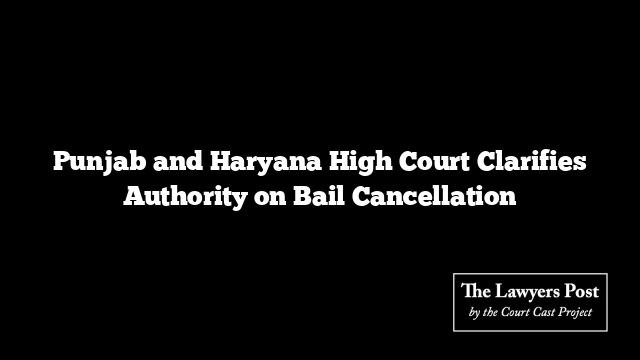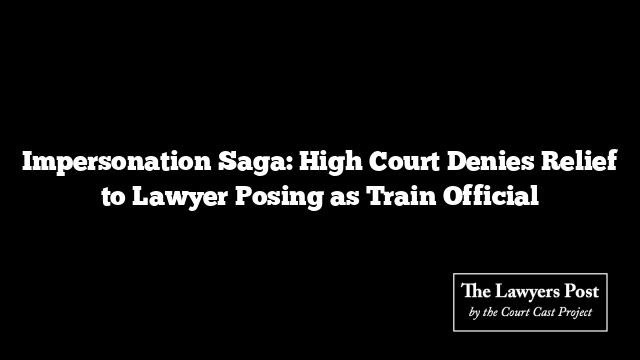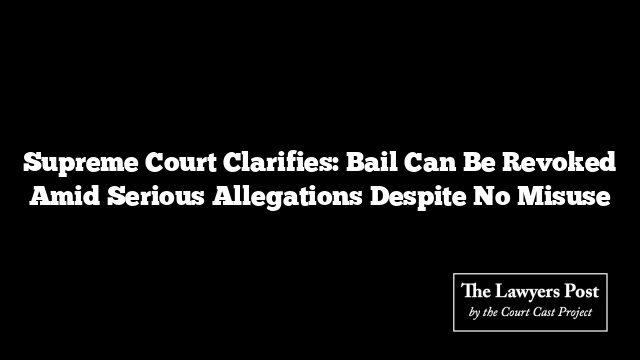In a recent judicial pronouncement, the Punjab and Haryana High Court delved into the intricate terrain of bail cancellation, shedding light on the powers vested in Sessions Courts regarding the annulment of bail orders bestowed by the High Court.
The crux of the matter revolves around the Sessions Court’s prerogative to revoke bail granted either by itself, the High Court, or a Magistrate’s Court. However, this authority extends solely to instances where the accused breaches the conditions imposed by the High Court during bail dispensation. Such breaches may encompass attempts to sway witnesses, stall legal proceedings, or perpetrate further offenses while on bail.
Justice Sumeet Goel spearheaded this elucidation during a case concerning anticipatory bail in a legal saga entwined with the Indian Penal Code and the Arms Act, originating from a matrimonial imbroglio.
Distinguishing between the concepts of “cancellation of bail” and “setting aside of a bail order,” the High Court expounded on the nuanced factors underpinning each. The former hinges on supervening circumstances or the misconduct of the accused, while the latter scrutinizes the legality and justification of the bail decree itself.
The jurisdictional labyrinth between the High Court and Sessions Court, as delineated in Section 439(2) of the Code of Criminal Procedure, necessitates careful navigation. While filing a plea directly with the High Court is permissible, it must substantiate cogent reasons for bypassing the Sessions Court initially.
Furthermore, the High Court elucidated that pleas seeking to nullify bail orders, whether anticipatory or regular, should ascend to a superior tribunal for adjudication. In the case under scrutiny, the absence of evidence indicating the misuse of anticipatory bail led to the dismissal of petitions contesting bail orders issued by the Sessions Court in Faridabad.
Notably, the Court underscored that the non-recovery of dowry articles alone does not suffice as grounds for withholding anticipatory bail, underscoring established legal principles.
Advocate Sitanshu Sharma represented the petitioner, with Additional Advocate General Priyanka Sadar advocating on behalf of the State of Haryana, and Advocate RS Athwal standing for the accused.





